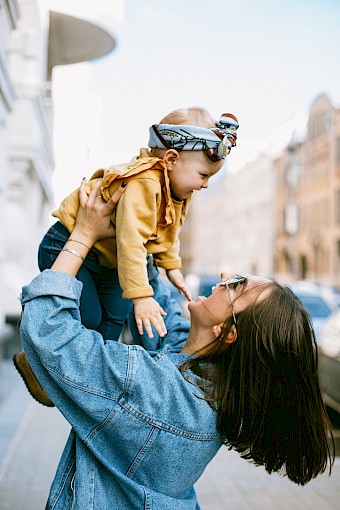

There are many reasons for this. They may be because they are placed in care voluntarily by their primary carer(s), or they may have suffered neglect or have been exposed to drugs or alcohol pre-birth. They are often premature, underweight and are more likely than other children to have serious medical problems, disabilities and developmental delays.
Foster care at this time goes a long way in meeting the secure attachment needs that all children have. The sooner these attachment needs are met in a young child's life, the sooner they can begin to thrive.
Early years foster care is an essential service because meeting the secure attachment needs, that all children have, as early as possible plays a crucial role in a child's life chances. A Government report regarding Children in Public Care (England ending 31 March 2018) highlights that young people aged between one and nine make up one-third of the children in care.
In respect of babies and toddlers, a council's care plan is generally centred around the eventual return of the child to their birth family, once further assessments and support is provided. However, not every situation allows for a return to the birth family, and long term (permanent) fostering of a toddler would mean that you will have to be available 24 hours a day, the same as all parents.
Fostering babies is what motivates many potential carers; however, if this is your motivation, you must understand, only 6% of children in care are under one year old. Additionally, it is essential to realise that a high proportion of these babies are in care with their birth parent, in what is called a Parent and Child Placement. You can read more about this type of fostering, which may also be something to consider, here. (insert link to P&C fostering)
Below are some helpful tips to consider if you are thinking about fostering a toddler or infant:
It seems the smaller the child, the larger the equipment is that they need! from a car seat, pram and pushchair, to a walker, high chair, and activity centres and toys.
The list can seem endless and daunting, but some of the items can be picked up secondhand on eBay or local Facebook pages, although it's worth remembering that the law states that car seats need to be purchased new. Also, before buying anything second hand, you should check that the item has not had a safety recall.
While it is very sensible to have a certain amount of equipment put by in advance, keep in mind that the equipment needs of a child are extremely age dependant, and every child has individual needs.
You can not watch a child twenty-four hours a day, and if they are mobile they can get into everything! So if you are considering fostering an infant or toddler, you will need to consider how you are going to childproof your home.
An accident can happen in a moment.
How will the fostering workload be split in the house? Do you have people you can rely on close by? Your support group, be it family or close family friends, can really make all the difference. Seek out other foster carers in Affinity through support groups or other meetups (face to face or virtually) so that you have a support system that understands what you are going through.
Do not underestimate the amount of disruption a small person can make! Everyone in the household will need time to adjust to the needs and demands of your new charge. So we recommend you plan with and prepare everyone in the house. Also, consider how you are going to approach behaviour management; terrible twos can often stretch into terrible threes! What will the roles and responsibilities be of the different people in the household?
As with any fostering placement, fostering a baby or toddler is a lot of work; however, knowing that you have provided love, safety, and care for a child in need is also a rewarding experience. Take the time to prepare yourself and your home, so it is ready for a foster care placement. Affinity Fostering will be there to support and train you along the way.
Fostering a younger child is both challenging as well as rewarding, you will receive training and support from us as well
The training covers everything relating to caring for and safeguarding a young family, including how parents form relationships with their children.
You’ll also receive frequent visits from your Supervising Social Worker and support from our dedicated Support workers.
Complete the form below to receive our brochure.